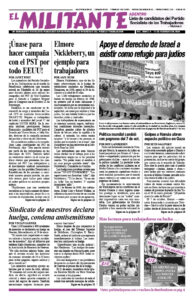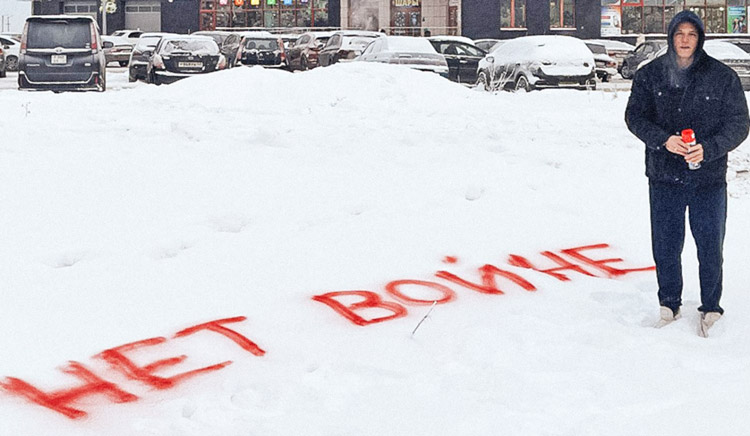Moscow has stepped up its deadly aerial attacks on Ukrainian cities, bombarding apartment buildings, schools, energy infrastructure and other civilian targets in hopes of demoralizing working people fighting to defend their country’s independence. But Ukrainian workers are determined to beat back this assault as the Russian government’s punishing invasion nears its third year.
Russian President Vladimir Putin’s regime unleashed a barrage of cruise and ballistic missiles at Kyiv, Kharkiv and other cities Jan. 23, killing at least 19 people and injuring over 120.
The Ukrainian military, saddled with shortages of the most effective anti-missile weaponry, intercepted only half of the missiles launched, and just five of the 24 ballistic missiles.
In Kharkiv, Ukraine’s second-largest city, the attacks happen almost daily. The city is less than 25 miles from the border with Russia.
Moscow hit Kharkiv three times Jan. 23 — at 4 a.m., then just after 7, and again close to 10 p.m. Twice the city’s air-raid sirens warning civilians to take shelter didn’t go off until after the explosions began. Missiles launched from Russia land in Kharkiv in less than a minute. Many school classrooms have been relocated to subway stations underground.
For months Moscow has been expending immense resources and efforts to try to take control of Avdiivka, a largely destroyed city in the Donetsk province in eastern Ukraine. The city was an industrial center before the war, inhabited by 32,000 people. Today, just fewer than 1,100 civilians remain, largely the elderly.
New videos from the battlefields around Avdiivka released by the Ukrainian military show hundreds of burned out and destroyed Russian military vehicles. Open source data reports sightings of 182 tanks, 317 armored fighting vehicles and 15 trucks destroyed. Thousands of Russian troops have been killed, many sent into combat in human waves untrained and without sufficient weapons, thrown into battle as cannon fodder by the Putin regime, with little to show for it.
As this slaughter continues, opposition by working people in Russia to Moscow’s invasion is increasing, despite harassment and arrests by the Putin regime aimed at anyone who speaks out publicly against the war.
Soldiers’ wives speak out
Anger has exploded among mothers and wives of soldiers who were conscripted and sent to the front lines since Sept. 21, 2022.
On Jan. 20, Maria Andreeva delivered a message to the Moscow election headquarters of President Putin, part of a delegation from The Way Home, an organization of over 30,000 soldiers’ wives and mothers.
“So what’s next? The Ministry of Defense has spent its money, now we need to squeeze everything out of our guys to get the last life out of them?” she said. “What will I get back? A man without legs, without arms, a sick man? Don’t you know what’s happening there? I think now is exactly the moment when we need to act. If not now, then when?”
A Putin campaign staff representative told her the soldiers are there because they “want to fight.”
The Jan. 22 Kyiv Post ran the article “‘Thrown into Hell’ — Relatives of Russian Soldiers Describe Loved Ones Being Sent to ‘Svatoro Slaughter.’” It gives the lie to Putin’s claim the conscript soldiers “want” to join his invasion of Ukraine. Svatoro is a city in Luhansk province in eastern Ukraine. The article describes the anger expressed by mothers whose sons were forcibly conscripted into Russia’s army and sent there.
“Igor Khovalkin, 23, was taken from a Moscow workers’ dormitory after working a night shift,” the Kyiv Post reported, quoting Lyudmila, his mother. “You could say that his hands were twisted, and he was dragged into this hell.
“Under pressure, he was sent [to the front] by force,” she said. “He didn’t want to go.”
Moscow’s parliament is now discussing a bill that would seize any assets of individuals convicted of spreading what the government claims is “fake” information about the military. Following Moscow’s invasion of Ukraine, the Putin regime made it a criminal offense to express any criticism of the military. As of Dec. 17, at least 19,847 people have been detained in Russia for opposing the war, the human-rights OVD-Info source reported.


